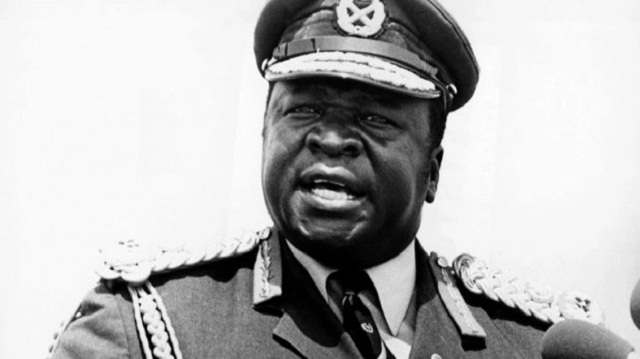
Today marks 39 years since a combined force of Uganda exiles, with support from the Tanzanian armythe TPDF, overthrew Amin, the climax of a five-month brutal war that had started in October 1978 when Amin invaded Tanzania.
Kampala, Uganda | URN | Dr Martin Aliker, a veteran dental surgeon, politician and businessman says he was approached twice to be president of Uganda, each time turning the offer down.
The 90-year-old presidential advisor and former minister says it was him who nominated Professor Yusuf Lule and convinced him to become president of Uganda in April 1979, after the fall of the government of General Idi Amin Dada.
Today marks 39 years since a combined force of Uganda exiles, with support from the Tanzanian army – the TPDF, overthrew Amin, the climax of a five-month brutal war that had started in October 1978 when Amin invaded Tanzania.
In his 2018 autobiography, “The Bell is Ringing: Martin Aliker’s Story”, Dr Aliker reveals that, long before the war and Amin ouster, he had been approached by two religious leaders who asked him to consider becoming president of Uganda, after Amin.
The second request came in March 1979 during the Moshi Conference, when Col Tito Okello Lutwa, a commander of Kikosi Maalum, one of the fighting groups; walked up to Aliker and told him the “fighters” wanted him (Aliker) to be president. Okello would become a General and commander of the post-Amin army, the Uganda National Liberation Army (UNLA).
In July 1985, Okello, with support from his friend and tribesman, Lt-General Bazilio Olara Okello, toppled the second government of Apollo Milton Obote and became president.
Aliker’s book details an illustrious journey that starts in Gulu in Acholi in 1928, takes him to affluent schools such as Kings College Budo and later Makerere University. The journey would later take him to the United States on a scholarship from where he qualified as a dental surgeon.
Returning to Uganda in 1959, after seven years abroad, Aliker established himself as a dental surgeon and businessman among other roles until October 1972 when he ran into exile in Nairobi, Kenya. It is here that he reestablished himself, both in business and his profession as a dentist, but also played part in different activities to overthrow Amin.
Meeting religious leaders
On page 118, Aliker narrates a story that happened in 1977, the year Archbishop Janan Luwum was brutally murdered alongside two government ministers – Charles Oboth-Ofumbi and Lt. Col. Erinayo Oryema – on the pretext that they were plotting to overthrow Amin’s government.
Later that year, according to Aliker, he received two “unexpected visitors.” These were Cardinal Emmanuel Nsubuga, the head of the Catholic Church in Uganda at the time and Bishop Dunstan Nsubuga, of Namirembe Diocese.
“They were two archbishops, the head and acting head of the Catholic and Anglican churches, both coincidentally called Nsubuga, who were attending a conference in Nairobi,” Aliker writes.
It would appear Bishop Dunstan Nsubuga was acting archbishop in the interim, after the death of Archbishop Luwum in February 1977 and before the election of Bishop Silvanus Wani as substantive archbishop later in the year.
 The Independent Uganda: You get the Truth we Pay the Price
The Independent Uganda: You get the Truth we Pay the Price



